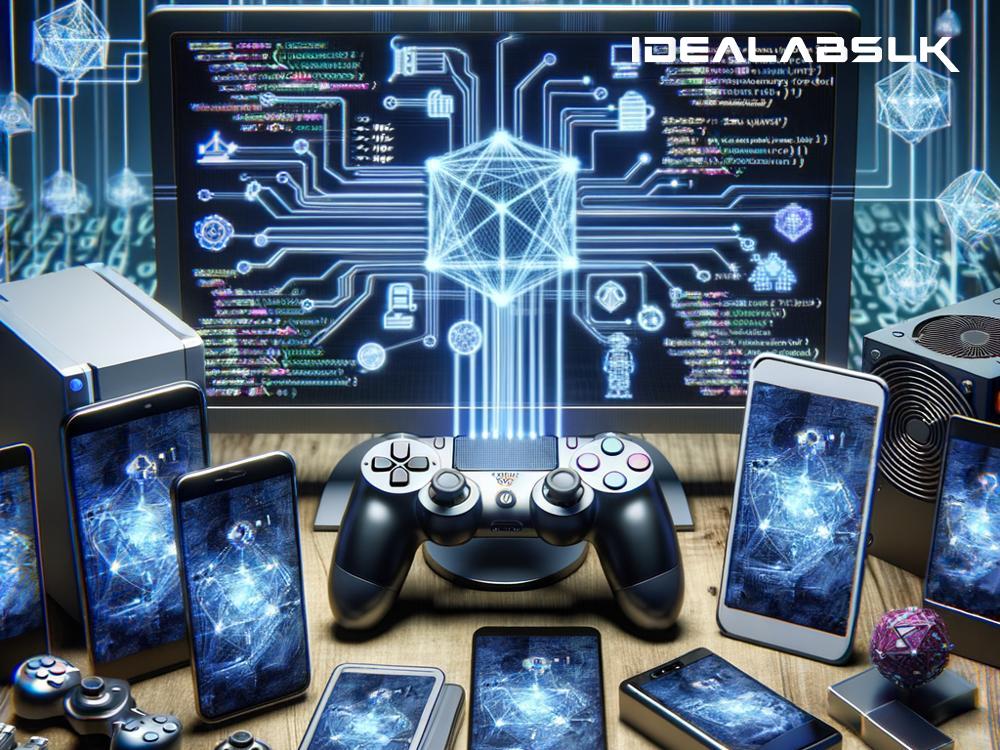How AI Works in Multi-Device Gaming Ecosystems
The world of gaming has evolved dramatically over the years, transitioning from simple, single-device play to complex multi-device ecosystems where players can jump from their console to a smartphone, then to a tablet without missing a beat. Central to managing this seamless transition and enhancing player experience within these ecosystems is Artificial Intelligence (AI). But how exactly does AI function in such an interconnected environment? Let’s break it down in simple English.
Understanding AI in Gaming
First off, AI in gaming isn’t just about making non-player characters (NPCs) smarter (though that’s a significant part of it). It's also about enhancing how the game responds to the player, adapts to their skill level, and even how it can connect different devices to offer a unified gaming experience. From the standpoint of a multi-device gaming ecosystem, AI serves as the invisible bridge that seamlessly connects different gaming platforms.
Personalized Gaming Experiences
One of the main ways AI shines in multi-device gaming is through personalization. Imagine playing a game on your console, and then you need to switch to your smartphone. AI helps in remembering exactly where you left off, what items you had in your inventory, and what missions you were on. But it goes even deeper by analyzing your play style and possibly adjusting the game’s difficulty level accordingly. Maybe you're great at solving puzzles on your console but struggle with quick reflex challenges on your mobile device. AI can detect these changes and adapt the game to ensure you're still having fun, regardless of the device.
Cloud Gaming and AI
Cloud gaming platforms are a significant part of multi-device gaming ecosystems. These platforms allow you to stream games directly from the cloud to any of your devices. Here, AI plays a critical role in managing data bandwidth and ensuring a lag-free experience. By predicting network conditions and player behavior, AI algorithms can dynamically adjust streaming quality to maintain smooth gameplay, whether you’re on a high-speed Wi-Fi connection or using cellular data on the go.
AI and Cross-Device Gameplay
Cross-device gameplay is a scenario where multiple players use different types of devices to play together. For example, one player might be on a console, another on a PC, and a third on a smartphone. Integrating AI into this mix allows for balancing the game in real-time, ensuring that no player has an unfair advantage or disadvantage because of the device they’re using. AI can adjust game mechanics on the fly, such as the accuracy of a shot or the speed of a player, to keep the competition fair and engaging for everyone.
Enhancing Multi-Device Game Development
Behind the scenes, AI also significantly impacts how games are developed for multi-device ecosystems. Game developers use AI-driven tools to test how their games perform across different devices, optimizing them for various screen sizes, processing powers, and control schemes. This means that no matter what device you’re using, the game feels like it was made specifically for it.
Challenges and Future Prospects
While AI has the potential to revolutionize multi-device gaming, there are still challenges to overcome. Data privacy concerns, the complexity of AI algorithms, and the need for powerful hardware are just a few. However, as AI technology continues to advance and become more sophisticated, we can expect even more seamless, personalized, and immersive gaming experiences across all our devices.
Moreover, the future looks promising with developments in AI models that can learn from player feedback in real-time, making games more dynamic and responsive than ever before. We might also see AI being used to create entirely new types of games that are specifically designed for multi-device ecosystems, offering experiences that we can barely imagine today.
Wrapping Up
In conclusion, AI is the cornerstone of modern multi-device gaming ecosystems, enhancing how games are played, developed, and experienced across different platforms. From personalizing the gameplay to ensuring fair and balanced multi-device gameplay, AI’s role is both profound and multifaceted. As technology progresses, the integration of AI in gaming will only deepen, promising to bring about an era of gaming that is more interconnected and immersive than ever before. So, next time you switch from your console to your smartphone mid-game, remember there’s a sophisticated web of AI working tirelessly behind the scenes to make your gaming experience as seamless as possible.

